- Home
- Allison Brennan
Lucy - 05 - Stalked Page 2
Lucy - 05 - Stalked Read online
Page 2
Fifteen Years Ago
The night my sister died, our mother gave us the Game of Life.
Mom bought us guilt presents because, as Rachel said, she knew what she was doing was wrong. She thought if we just played quietly in the attic, we’d ignore what went on downstairs. But sound travels in old houses, and even if Mom said it was “just a party,” we knew better.
Dad had sort of finished off the attic two years ago, putting in insulation and a space heater and hooking up cable and Nintendo. It became my sanctuary, for me more than for my sister: I guess I just liked having my own private hideout. Mom bought a couple of beanbag chairs and two long, narrow throw rugs that fit the space when laid out side by side.
We were up there with our new game the night of the last party.
It took me nearly an hour to set everything up because all of the plastic pieces came attached to one frame and I had to break each one off. I didn’t ask Rachel to help because she was in a bad mood, pretending to read. I knew she wasn’t reading because she never turned a page in her book. The sound of the rain pounding on the pitched roof would have been scary if I was alone, but I wasn’t scared with my sister here.
“Ready,” I said. “There’s no purple car; do you want blue?” Purple was Rachel’s favorite color. Blue was mine.
“You can have blue.” Rachel sighed and put the unread book down. She picked up the red car.
I began to explain the rules, but Rachel cut me off. “I’ve played it before, at Jessie’s house.”
“Is that why you’re mad? Because Jessie said you couldn’t come over tonight?”
Rachel shrugged. “It’s not her fault.”
That was it. I had only just turned nine, but I knew my sister better than anyone, even our parents. “I wish Grams was here.”
“Yeah.”
Grams lived in Florida most of the year. Her arthritis was so bad, she could hardly walk when it was cold. Rachel and I always spent spring break with her, and we never wanted to come home. Grams came back to Newark in May and stayed for the summer. After Grandpa died two years ago, she stayed in the guest room and Mom and Dad didn’t have parties. They became almost normal parents.
We played quietly, but as the party got louder Rachel started getting mean. When she had to pay income tax, she leaned back and said, “I can’t concentrate.”
“It’s just the luck of the spinner,” I said. “But we can play something else. Mario Kart?”
She closed her eyes. “I hate them.”
My stomach hurt. She was talking about Mom and Dad. I didn’t like this Rachel. I just wanted everyone to be happy and like each other.
“Remember last time when we snuck out and got ice cream?” I said. “Want to do that again?”
“It’s raining too hard. I’m not mad at you, Petey, I just don’t want to be here, okay?”
“I know.” I bit my lip. “What about poker?”
“You’ll beat me at that, too.”
“I’ll let you win.”
She laughed, and my stomach hurt less because Rachel’s laugh makes me smile. She jumped up and tickled me. “You’re lying, munchkin.”
I giggled. “Blackjack? Yahtzee? I’ll give you a head start on Mario Kart, a whole lap if you want.”
Rachel sighed and rolled over to her back. The rain fell so fast I couldn’t separate individual raindrops. “Petey? Would you really want to live with Grams?”
“Live? Like forever?”
“When we visit next month, I’m going to tell Grams everything. She’ll let us stay. Maybe she’ll never come back to Newark, either. She only visits because of us.”
The pain in my stomach hurt more than ever. “Don’t do that. It’ll make Grams sad.”
She put her chin on her hand and looked at me. “I’m much older than you. I’ll be twelve next week; I know what’s best. Look at it this way: Either Grams tells Mom and Dad to stop with the stupid parties and we stay here without all this weird stuff, or we get to live in Florida. Right? And Grams’ friend Larry will take you fishing. Remember last year? We had a lot of fun on his boat.”
True. But Dad took me fishing, too. Sometimes. I bit my lip when I remembered I hadn’t gone fishing with Dad since before Grandpa died, because Grandpa always went with us.
“Mom and Dad would be sad.” I sounded like I was going to cry, and I didn’t want to be a baby, but I didn’t want anything to change that much. I just wanted a normal family.
“If they’re sad, they can cut out this shit.”
My eyes widened. “You said shit.”
“So did you.”
“Only because you said it first.”
Rachel smiled at me, but it was a sad face. I wished she didn’t think I was a little kid. I was nine, in third grade, and I was smart, too. All my teachers said so. They had wanted me to skip third grade, but my parents said no because I’m shorter than all the other third graders.
“Think about it, Pete, okay? I won’t say anything if you’re not okay with it.”
I didn’t believe her. Rachel was lying to me. I knew it deep down and didn’t know how I knew. Maybe because she wasn’t looking at me? Like when she said she wasn’t sneaking out to visit Jessie last month, but she did, anyway.
Maybe she was right and we should talk to Grams.
I didn’t want to leave.
“I’m going to my room to call Jessie. Set up Mario Kart, we’ll play when I get back, I promise.”
I did what she said and played a couple games alone while I waited for her. But she didn’t come back. I don’t know when I fell to sleep, but I woke up to thunder.
The clock on the VCR flashed 12:00. The power must have gone off and on. But it felt later than midnight. I went downstairs, feeling my way down the narrow staircase to the second-floor landing. The house was very quiet. It smelled like it always did after a party, of stale smoke over stinky food and drink. Rachel’s light was off. I opened her door. Her night-light shined on her bed. It was empty. She must have snuck out without me. Went to Jessie’s without telling me. I started crying. I didn’t want to be alone.
I crawled into my sister’s messy bed, missing her and mad at her for leaving me.
It wasn’t until six days later that the police found Rachel. She was dead. But in my heart, I think I’d known from the beginning.
CHAPTER THREE
FBI Academy, Quantico
“Kincaid!”
Lucy entered the gym with two minutes to spare. Her conversation with her criminal psychology instructor, Supervisory Special Agent Tony Presidio, had taken longer than she’d thought, but she made it on time.
“Yes, sir,” Lucy said, pulling up at the end of the row of new agents from Class 12-14.
“Five pull-ups.”
“I’m not late, sir.” Lucy spoke automatically but immediately realized she should have kept her mouth shut.
Tom Harden stared at her, his expression unreadable. He wasn’t an agent but had been an Army Ranger with extensive experience in physical training. He looked every bit a recently retired drill sergeant, with close-cropped hair and a rock-hard body. He’d run New Agent Physical Training for the last three years. He was only five foot nine, an inch taller than Lucy, and stared without blinking.
“Make it ten, Kincaid,” he said. “You were the last one out by more than five minutes. No need to pretty yourself for a workout, sweetheart.”
Lucy almost argued with him. She wanted to. But she understood the psychology behind the FBI’s New Agent Training program. One of the primary tests—a test they began the moment they set foot on campus—was a stress test. How well did the new agents handle stress? How well did they perform under fire? Could they both take orders and think independently?
She’d prove she could handle stress as well as anyone. Sometimes, she thought her entire life had been one big stress test.
Lucy walked over to the pull-up bar and grabbed it.
She expected Harden to order her fellow agents to start their warm-up run; in
stead, he turned and watched her, which meant everyone else also stared.
She broke out in a sweat.
Please, please, please, start the drill. Don’t look at me.
Lucy’s phobia manifested and her arms began to shake. She hated being watched. It wasn’t hate; it was fear. Cold, dark, crushing fear that made her want to run. Fear that made her head ache, fear that made every hair on her body rise as she felt the eyes of her friends on her.
She’d been doing so well these last three weeks. No exercises were solo, most were in groups or she had a partner, and even when her team was watching she managed to talk herself out of the panic born from her kidnapping and rape seven years ago. She had convinced herself that her fellow new agents were observing the drill as a whole, or her partner, but never watching only her. When she thought of herself as part of a unit she successfully battled her phobia. It worked during their first PT test on day two at the Academy, and it had worked every day since. It had been nearly two months since her last real panic attack.
Not here.
Harden said, “That was a half-ass pull-up. You’re still on two, Kincaid.”
Bastard.
Did he know about her fears? Of course he did—it must be in her file. Nothing was secret from the FBI. Her file was probably thicker than anyone else’s here.
Stress management. If she couldn’t control this phobia, she was going to lose everything she’d worked for.
She closed her eyes, but that made it worse because even though she couldn’t see anyone the pricks of their eyes on her skin made her squirm. She felt them, a sixth sense that she’d successfully used as a self-defense skill but that she couldn’t control. She hung from the bar, her muscles pulling at her, tense not from the pull-ups but from the panic. Locked up so tight that she wasn’t able to pull herself up, she wasn’t able to stop shaking.
“Three, Kincaid,” Harden counted. “No one is doing anything until you’re done.”
Lucy opened her eyes and stared at him. There was something in his flat expression—hope? Did he want her to fail? To embarrass her? To remind her that she had been a victim?
She pulled herself up again. Four.
I am not a victim.
Her arms burned because she’d hung too long, but she was going to make it if she killed herself. She would not fail, and damn if she was going to let a cocky, authoritative instructor make her feel like a failure—or, worse, a victim. She wasn’t a victim, and she wasn’t going to let anyone make her feel victimized.
Lucy felt her shields rebuilding as she pulled her chin over the bar. It was almost as if the last eight months hadn’t happened, that she hadn’t learned to be almost normal. If she was going to survive the FBI Academy, she’d have to regain her distance, her detachment, bury her emotions again. Failure wasn’t an option—she was going to survive, she was going to be an agent, and if she had to be cold and unemotional she would be.
Five.
Everyone here had stories. Not hers, but the eleven trainees who’d served in the military had faced life and death. Different, but no less soul-searching than her own past.
Margo had joined the Army right out of high school. She’d been a poor kid from New York with a drunk for a mom and no hope for the future. The Army gave Margo a future.
Six.
“Your nose didn’t even top the bar,” Harden said. “You may be a decent runner, but are you going to run away from danger, or face it? Let’s see a real six.”
Bastard.
Six.
The Army had given Margo her college education. She’d wanted to be a cop but she’d been recruited into the FBI when she was a twenty-seven-year-old college senior. Lucy felt closer to her than anyone else—and not just because they shared a bathroom.
She and Margo had fallen into a small, dedicated group of new agents—two other military veterans, a paramedic, a prosecutor, a detective, a linguist, and an accountant. The accountant, Reva Penrose, was a math teacher with a Ph.D. in accounting. Reva was Margo’s opposite. Petite, feisty, a bundle of energy. Growing up in rural Texas, Reva had been raised with guns and had aced her first firearms test. But while she was a whiz on the range, she’d gotten the minimum acceptable score on the PT test.
Seven.
Focusing on her friends and thinking about them gave Lucy the ability to handle the eyes on her. She’d never forget they were there, that the other thirty-three agents in Class 12-14, and Harden, and the field counselors were all staring at her.
But she could overcome it.
Eight.
Her shell was growing again. Guilt flooded through her. All the time her boyfriend, Sean, had spent helping her be as normal as possible, after three weeks and one punishment it was gone.
Nine.
A sense of loss filled her. She had almost been one of the group, just another new agent among many. But no one else here had these fears, this overwhelming sense of panic. While everyone had baggage, hers still weighed her down. Without a hard shell, she wasn’t going to survive the stress of training.
She only hoped she could find a balance between putting up the barrier and having friends.
Ten.
She dropped down, hoping everyone in the room thought the sweat coating her skin was from her exertion and not the simmering panic attack.
But she’d won. This time, she’d battled and won.
She stared at Harden. His expression was unreadable.
He turned his back to her and looked at the assembled group. “Twenty laps. Go.” He didn’t look at Lucy but said, “That means you, too, Kincaid.”
She caught up with Reva, kept to her slower pace, but felt better being in the middle of the pack instead of leading or trailing. Her sister-in-law Kate, who’d worked as the cybercrimes instructor at Quantico for years, had told her to blend in as much as possible. Do well, but keep her head down, don’t stand out. Somehow, no matter how much she wanted to be just like everyone else, she’d never been good at keeping a low profile.
Lucy was on her third lap when the new-agent class supervisor, SSA Paula Kean, stepped into the gym and approached Harden. As Lucy passed Kean and Harden, Harden said, “Kincaid, SSA Kean needs you for the rest of the class. I’ll expect you to make up the laps tonight.”
“Yes, sir.” She grabbed her towel from her gym bag and put it around her sweating neck, then followed Kean out of the gym.
They walked down the hall toward Kean’s office. The senior agent was in her forties, tall and thin, with shoulder-length brown hair. She wore little makeup except for shiny lip gloss. “Do you know Special Agent Suzanne Madeaux?” she asked.
“Yes, ma’am. She’s out of New York.”
“She’s on the phone for you about a homicide.”
“In New York?”
“She said she had to speak with you immediately, didn’t give me any details.” Kean sounded irritated, but Lucy couldn’t tell if it was because of the interruption or the lack of information.
When Sean’s seventeen-year-old cousin Kirsten Benton went missing last February, Lucy had helped him track her to New York, where they landed in the middle of a serial killer investigation led by Suzanne Madeaux. Lucy had talked to Suzanne a couple of times since but always related to the Cinderella Strangler investigation, statements, and paperwork.
Lucy sat in the chair across from Kean’s desk. The supervisor sat down and surprised Lucy by putting Suzanne on speaker.
“Agent Madeaux?… Paula Kean here. I pulled New Agent Kincaid out of class; she’s here in my office.”
“Am I on speaker?”
“Yes. I’m Kincaid’s class supervisor; unless there’s a reason this needs to remain confidential, I’ll be in the loop.”
“Understood,” Suzanne said. “Lucy?”
“Hi, Suzanne.”
“I’ll cut to the chase. Have you been contacted by a true crime writer, Rosemary Weber? She’s writing a book about the Cinderella Strangler case.”
Lucy’s chest
tightened. She remembered the conversation she’d had with Weber, and it wasn’t one of her finer moments. She’d never told anyone to go to Hell before.
“Yes. It was the Friday before I reported here.”
“What did she call about?”
“The Cinderella Strangler investigation. She told me you were cooperating.”
When Weber said that Suzanne had already talked to her Lucy had been at first stunned, then angry, then deeply sad.
“She said that? No way was I cooperating.”
Lucy thought back to the conversation. “She strongly implied it. I assumed that’s where she got my name.”
“I guarantee, Lucy, I did not give her your name. I met with her as directed by my boss and listened to her proposal, but offered no information.”
Lucy was both relieved and upset with herself for being manipulated by Weber. “I should have called you. But I didn’t tell her anything about the case.”
Kean interrupted. “Agent Madeaux, what was so urgent that you couldn’t speak with Kincaid later?”
“She’s been murdered. Last night, in Queens.”
Weber had been killed? Before Lucy could ask any questions, Suzanne continued.
“NYPD thinks there may be a connection between whatever project Weber was working on and her death. I’m creating a time line, and because Kincaid’s name was in her notes, I needed to know if and when she spoke to her. Lucy, what was she fishing for?”
“She wanted to interview me about my involvement with the case. I said I had no involvement, and that’s when she said she’d been talking to you and NYPD.”
“I wish you’d called me.”
“I’m sorry I didn’t,” Lucy said. “She was very pushy. I cut her off, and eventually had to hang up on her. I blocked her calls after that.”
“Did Sean talk to her?”
“He didn’t tell me if he did.” She didn’t think so—Lucy had told him about the conversation; he would have said something to her.
Kean said, “Kincaid, as Agent Madeaux knows, special agents are not allowed to speak to reporters of any stripe without prior permission from a superior. You should have reported the conversation to me when you arrived.”

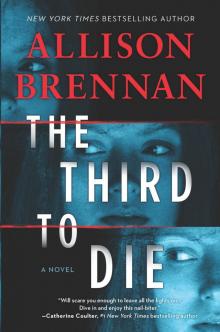 The Third to Die
The Third to Die Nothing to Hide
Nothing to Hide No Way Out
No Way Out Cold as Ice
Cold as Ice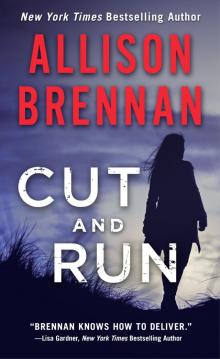 Cut and Run
Cut and Run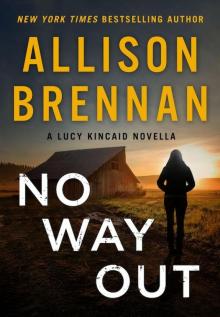 No Way Out (Lucy Kincaid Novels)
No Way Out (Lucy Kincaid Novels) Storm Warning
Storm Warning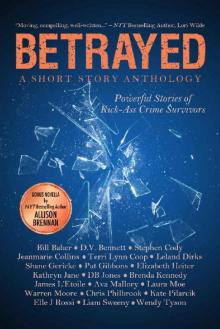 Betrayed: Powerful Stories of Kick-Ass Crime Survivors
Betrayed: Powerful Stories of Kick-Ass Crime Survivors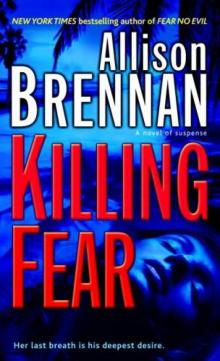 Killing Fear pb-1
Killing Fear pb-1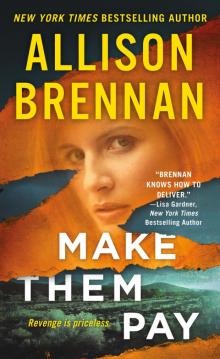 Make Them Pay
Make Them Pay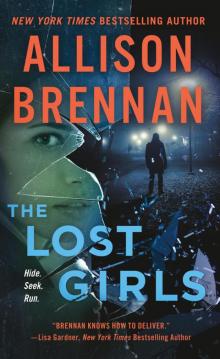 The Lost Girls
The Lost Girls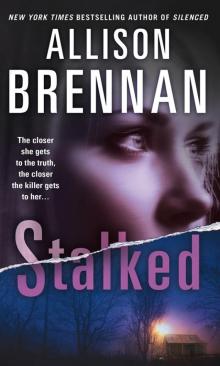 Stalked
Stalked Killing Justice
Killing Justice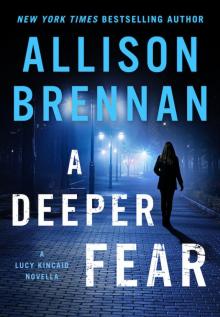 A Deeper Fear
A Deeper Fear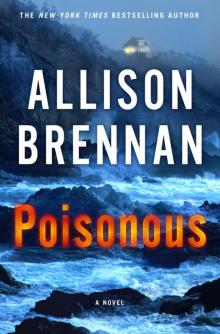 Poisonous
Poisonous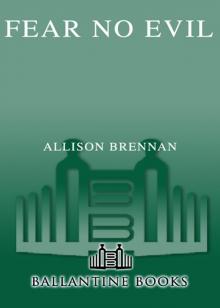 Fear No Evil
Fear No Evil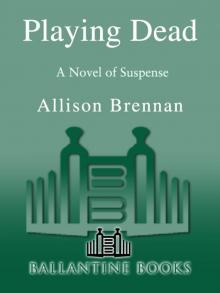 Playing Dead
Playing Dead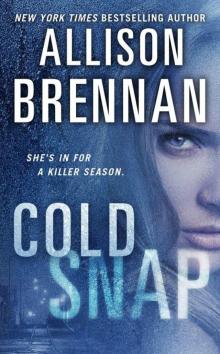 Cold Snap
Cold Snap Vacation Interrupted
Vacation Interrupted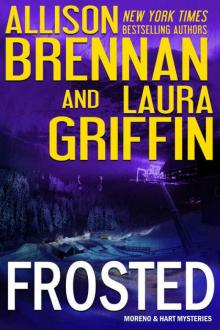 Frosted (Moreno & Hart Mysteries)
Frosted (Moreno & Hart Mysteries)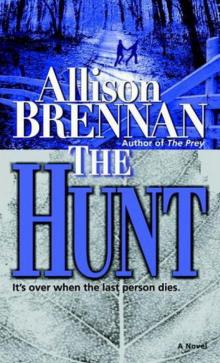 2 - The Hunt
2 - The Hunt Stolen
Stolen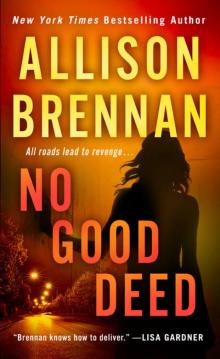 No Good Deed
No Good Deed Cutting Edge
Cutting Edge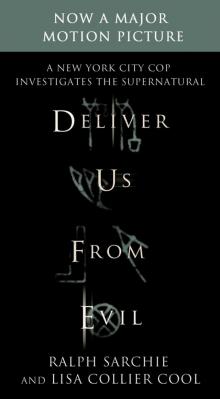 Deliver Us from Evil
Deliver Us from Evil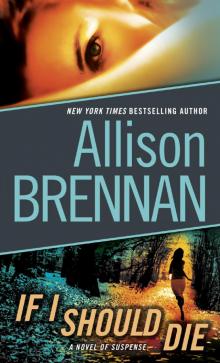 If I Should Die
If I Should Die Speak No Evil
Speak No Evil Silenced lk-4
Silenced lk-4 Original Sin sds-1
Original Sin sds-1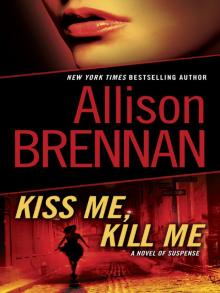 Kiss Me, Kill Me lk-2
Kiss Me, Kill Me lk-2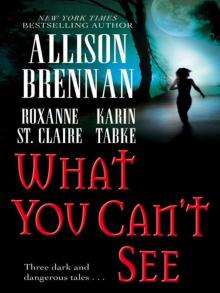 What You Can’t See
What You Can’t See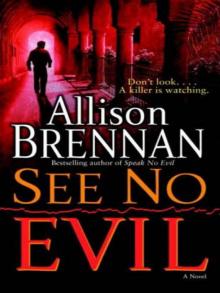 See No Evil
See No Evil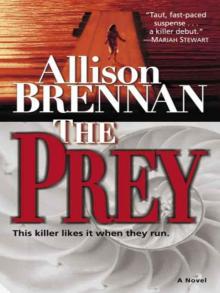 The Prey
The Prey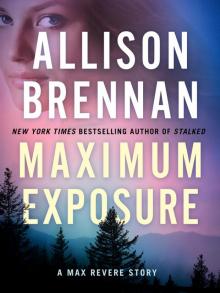 Maximum Exposure
Maximum Exposure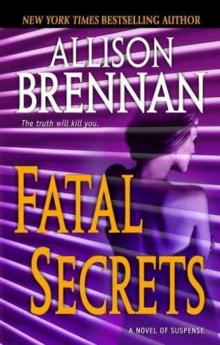 Fatal Secrets f-2
Fatal Secrets f-2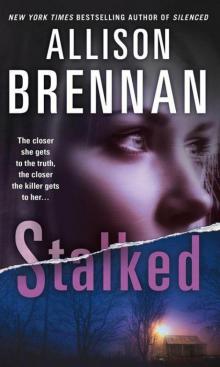 Stalked lk-5
Stalked lk-5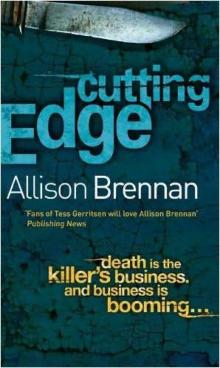 Cutting Edge f-3
Cutting Edge f-3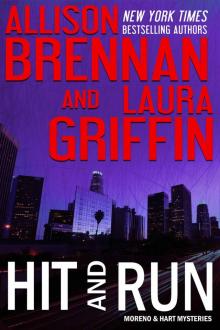 Hit and Run (Moreno & Hart Mysteries)
Hit and Run (Moreno & Hart Mysteries)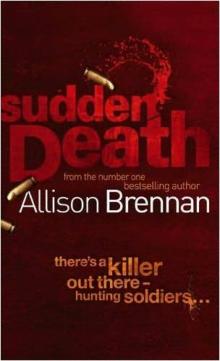 Sudden Death f-1
Sudden Death f-1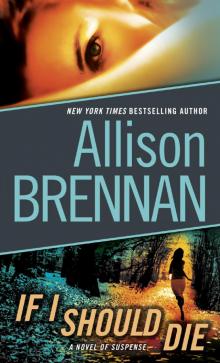 If I Should Die lk-3
If I Should Die lk-3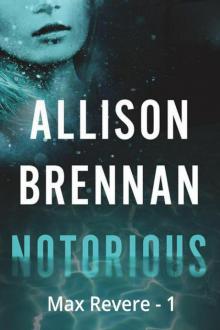 Notorious
Notorious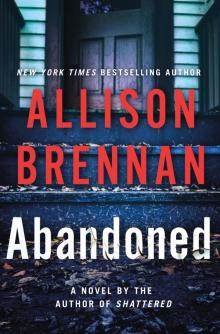 Abandoned
Abandoned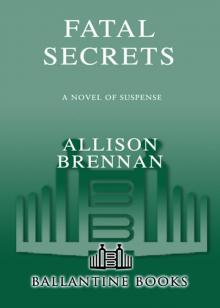 Fatal Secrets
Fatal Secrets The Hunt
The Hunt Carnal Sin sds-2
Carnal Sin sds-2 Love Is Murder
Love Is Murder Lost and Found
Lost and Found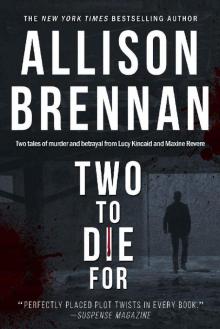 TWO TO DIE FOR
TWO TO DIE FOR Breaking Point
Breaking Point Best Laid Plans
Best Laid Plans Carnal Sin
Carnal Sin Silenced
Silenced Dead Heat
Dead Heat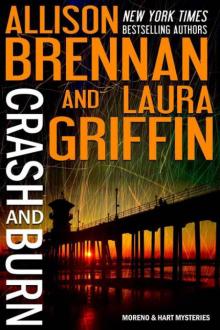 Crash and Burn
Crash and Burn Sudden Death
Sudden Death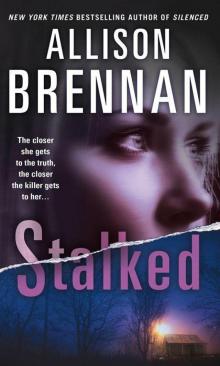 Lucy - 05 - Stalked
Lucy - 05 - Stalked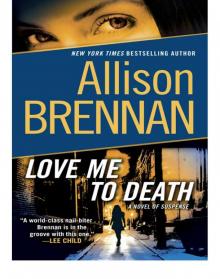 Mortal Sin
Mortal Sin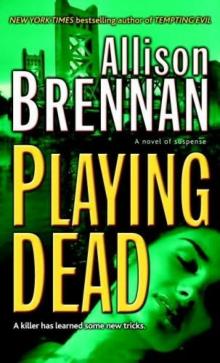 Playing Dead pb-3
Playing Dead pb-3 Kiss Me, Kill Me
Kiss Me, Kill Me Original Sin: The Seven Deadly Sins
Original Sin: The Seven Deadly Sins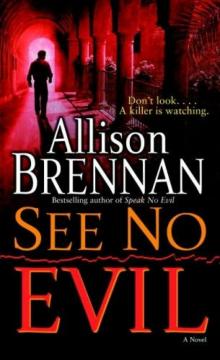 See No Evil e-2
See No Evil e-2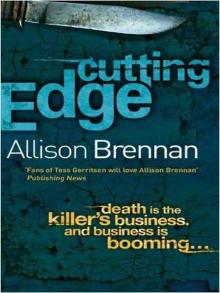 Cutting Edge: A Novel of Suspense
Cutting Edge: A Novel of Suspense Original Sin
Original Sin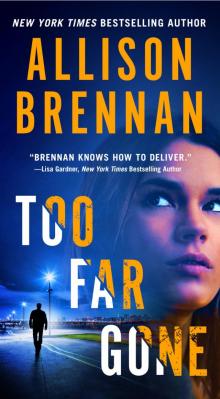 Too Far Gone
Too Far Gone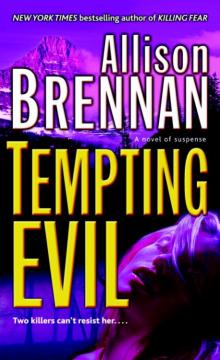 Tempting Evil
Tempting Evil Shattered
Shattered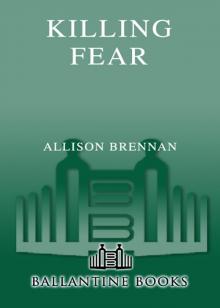 Killing Fear
Killing Fear Murder in the River City
Murder in the River City Love Is Murder (lucy kincaid)
Love Is Murder (lucy kincaid)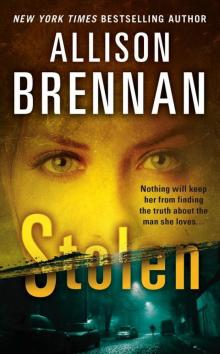 Stolen (Lucy Kincaid Novels)
Stolen (Lucy Kincaid Novels)